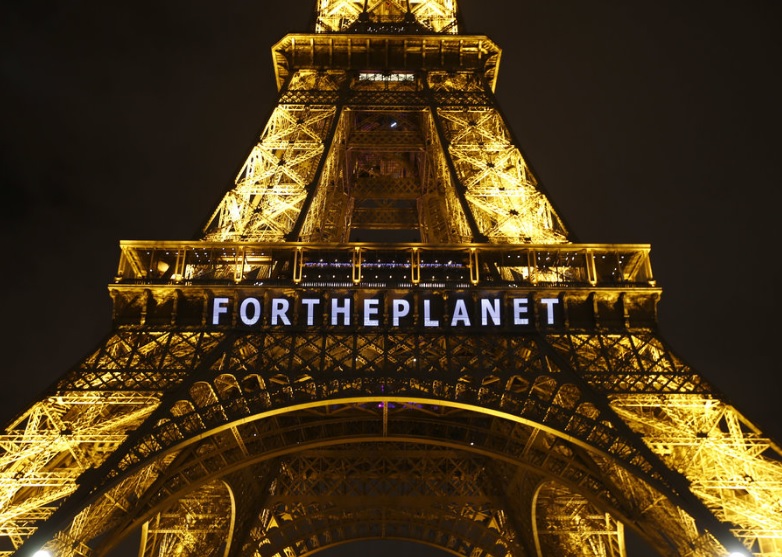 Reactions to Trump on Paris climate accord: Cities, states, and major corporations are staying committed to backing the Paris climate change agreement after President Donald Trump said yesterday that the U.S. will be leaving it. Tesla CEO Elon Musk is stepping down from Trump’s economic advisory panel over it, while Apple, Google, Twitter, Amazon, Facebook, Microsoft, IBM, and other companies have issued statements that climate change is an urgent threat that requires a global effort to combat. As of yesterday, an unnamed group that includes 30 mayors, three governors, more than 80 university presidents, and more than 100 businesses, has gone directly to the U.N. to back the Paris climate accord. California Governor Jerry Brown, representing one of the three states, is traveling to China today and will be in discussions encouraging the world’s largest auto market to cut back on air pollution and emissions regardless of what the U.S. government has chosen to do. The Climate Mayors group, representing 83 cities in the U.S., issued a letter backing the Paris climate agreement. Cities, states, universities, and companies would like to see the U.S. meet a previous commitment made under the Obama administration to reduce greenhouse gas emissions 80% below 2005 levels by the year 2050.
Reactions to Trump on Paris climate accord: Cities, states, and major corporations are staying committed to backing the Paris climate change agreement after President Donald Trump said yesterday that the U.S. will be leaving it. Tesla CEO Elon Musk is stepping down from Trump’s economic advisory panel over it, while Apple, Google, Twitter, Amazon, Facebook, Microsoft, IBM, and other companies have issued statements that climate change is an urgent threat that requires a global effort to combat. As of yesterday, an unnamed group that includes 30 mayors, three governors, more than 80 university presidents, and more than 100 businesses, has gone directly to the U.N. to back the Paris climate accord. California Governor Jerry Brown, representing one of the three states, is traveling to China today and will be in discussions encouraging the world’s largest auto market to cut back on air pollution and emissions regardless of what the U.S. government has chosen to do. The Climate Mayors group, representing 83 cities in the U.S., issued a letter backing the Paris climate agreement. Cities, states, universities, and companies would like to see the U.S. meet a previous commitment made under the Obama administration to reduce greenhouse gas emissions 80% below 2005 levels by the year 2050.
DOE funding increase: The U.S. Department of Energy announced yesterday that it’s it is honoring additional commitments to 10 previously selected Advanced Research Projects Agency-Energy (ARPA-E) awardees for a total of $20 million. It includes completion of approval for projects in ARPA-E’s Next-Generation Energy Technologies for Connected and Autonomous On-Road Vehicles (NEXTCAR) and Renewable Energy to Fuels Through Utilization of Energy-Dense Liquids (REFUEL) programs. NEXTCAR projects support improving vehicle energy efficiency, with a goal of reducing individual vehicle energy usage by 20%. REFUEL projects will use water, molecules from the air, and electricity from renewable sources to produce high-energy liquid fuels for transportation and other uses.
China backing off mandate: China has lightened up on its target for automakers selling all-electric and plug-in hybrid vehicles in that country. Last September, the government proposed mandating that 8% of all new vehicles sold be these “new energy vehicles” by 2018, which received protests from domestic and international automakers. After meeting with German Chancellor Angela Merkel in Berlin on Thursday, Chinese Premier Li Keqiang said a “solution” for implementing the quotas had been found, but he didn’t lay out a specific Chinese government program to be implemented.



